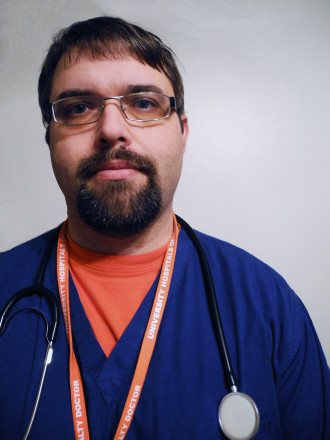A message from our former student, Dr Frank Trolmann

The Czech language is, in the world, quite rare. There are not a lot of Czech speakers, and the chances of you running into one of them in a hospital setting are low. It isn't zero, but it might not happen. This does not mean that your knowledge of Czech is useless, far from it. While there are very few Czech people, there are a lot of Slavic people, and their languages are not nearly as different as they would like you to believe.
But by far the biggest difference is in spelling. And when you are taking a patient's history, you don't have to know or care how they spell things. In Czech, ‘how are you?’ becomes the ubiquitous ‘Jak se máš?’ while in Polish it's ‘Jak się masz?’ They use different crazy letters, but it's the same sentence when spoken aloud. Correcting for your English or Portuguese accent, the patient will not be able to know which language you are nominally speaking. The Polish ‘Dziękuję’ may look pretty foreign, but when you realize that it's pronounced the same as the Czech ‘děkuji’, it's a lot less scary.
And that's just the West Slavic languages. The Southern Slavic languages (Croatian, Serbian, Macedonian, Bosnian, and Bulgarian) are also not very different. When you say hello in Croatian you say ‘Dobar dan’ and that's really not that different from the Czech ‘Dobrý den’.
Obviously you aren't going to become really fluent in Czech, and even if you did you aren't going to be able to communicate perfectly with people from other Slavic countries. But you are going to be able to get across basic concepts and ask simple medical questions. You'll be able to determine whether someone is in pain, how they are doing, and so forth. And you'll be able to explain that you are a doctor. The Czech language is small, but it goes surprisingly far when you have to speak to one of the 315 million Slavic language speakers in the world.
I am a doctor working in an A&E in the United Kingdom and I haven't seen a Czech patient yet. But I've run into Slovakian, Polish, and Croatian patients. And the ability to speak even minimally with them in their own language (or something close enough) is invaluable.
Doctor Frank Trollman, a graduate from the Second Faculty of Medicine
